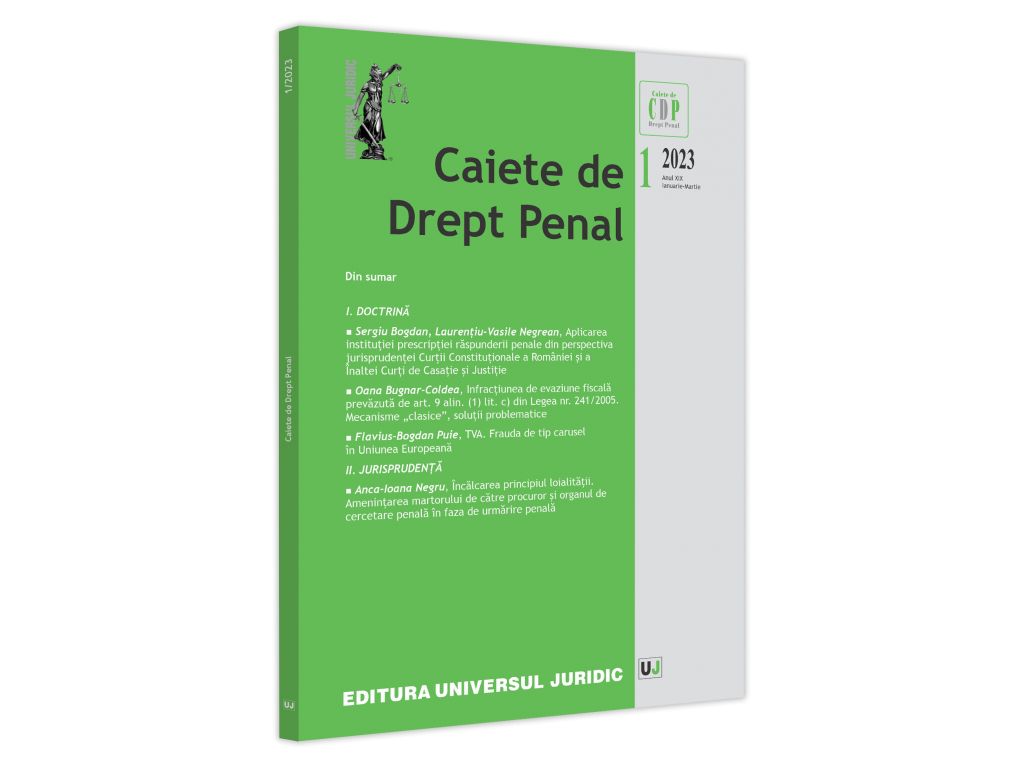The crime of tax evasion provided by Article 9 paragraph 1 letter c) of Law no. 241/2005. "Classical" mechanisms, problematic solutions
Abstract
Starting from a recent decision of the Cluj Court of Appeal issued in a case concerning, inter alia, the crime of tax evasion provided by Article 9 paragraph 1 letter c) of Law no. 241/2005, this article constitutes a specific analysis of some frequently encountered hypotheses in the judicial practice. Thus, the article analyses first of all the hypothesis of the recording in the accounting records of a company of fictitious invoices issued by other companies effectively controlled by the same person who controls the former. This situation is analysed by reference to three sub-hypotheses, being relevant to what extent, from a factual point of view, the goods were delivered/services were provided and if the amounts highlighted as expenses in the company's accounting records actually left the company’s property and to what extent. Secondly, it is analysed the situation of the successive sales of an asset between companies controlled by the same person so that the asset eventually ends up in the estate of an individual. Lastly, another frequently encountered situation in judicial practice and which is the subject of this analysis concerns the conclusion of a sale contract of a high value asset between companies controlled by the same person, with the aim of deducting value added tax or generating the possibility for the purchasing company to request its reimbursement.

